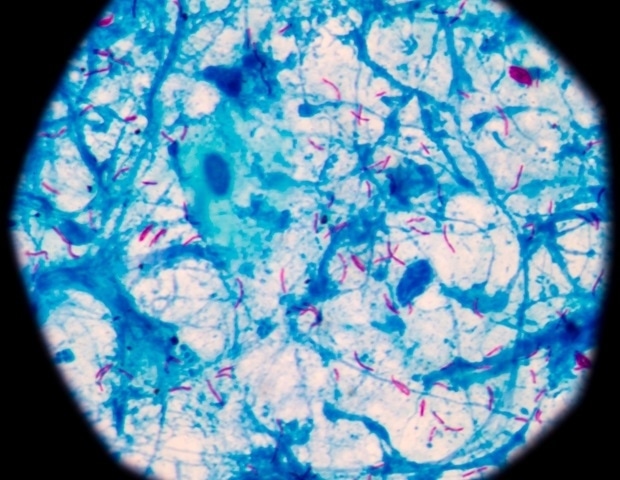
Under the supervision of four professors from the UMCG departments of Gastroenterology and Hepatology and Pathology and Medical Biology, Bourgonje conducted doctoral research on the predictive value of biomarkers for inflammatory bowel diseases (IBD) such as Crohn’s disease and ulcerative colitis. Among many other intriguing findings, he identified an important new biomarker that is able to reflect the severity of intestinal inflammation in patients with IBD and may hold great potential for development of a home-based monitoring test for patients with IBD. Leveraging data from the Lifelines population-based cohort, he is also actively performing research into preclinical IBD, i.e. identifying early biomarkers of the disease in order to be able to predict which individuals are at high risk of developing IBD in the future.
Arno Bourgonje will receive his PhD on Wednesday, February 1st, at 2:30 p.m. CET in the Academy Building of the University of Groningen.
Biomarkers for inflammatory bowel diseases
Inflammatory bowel diseases are chronic inflammatory diseases of the gastrointestinal tract. IBD is characterized by an alternating disease course that is notoriously difficult to predict and to adequately treat. The etiology and disease course are complex, heterogeneous and unpredictable, showing varying clinical patterns: some patients experience frequent episodes of active disease causing disabling symptoms, while others stay in long-term remission after having been adequately treated. As such, there is an urgent need for “biomarkers”; these are biological substances or indicators that can reflect a particular medical state or condition in the human body. Biomarkers can help in early detection of disease, assessment of disease activity and -complications, and in predicting treatment efficacy. Thus, biomarkers can be valuable in improving clinical care by rendering it more efficient and patient-friendly for patients with IBD. In addition, biomarkers can also be used to assess the effects of nutritional and medical (drug-based) treatments. The goal of Arno Bourgonje’s PhD research was to identify and apply biomarkers in patients with IBD, with a special emphasis on the underlying disease mechanisms involved.
New biomarker reflects the severity of intestinal inflammation in patients with IBD
One of the biomarkers extensively studied by Bourgonje relates to the production of so-called “reactive oxygen species” in the human body. These are highly reactive molecules released during energy production in mammalian cells. These reactive oxygen species can lead to severe cellular and molecular damage; this refers to a phenomenon also known as “oxidative stress”. Oxidative stress can be partially counteracted by antioxidants. During intestinal inflammation, however, reactive oxygen species are being excessively produced, resulting in tissue damage. Under these circumstances, however, antioxidant availability is insufficient in the human body which would help to attenuate oxidative stress.
Bourgonje investigated the potential utility of the circulating antioxidant capacity by measuring so-called ‘free thiols’. Free thiols are antioxidant substances that protect against oxidative stress by scavenging reactive species. His research shows for the first time that patients with IBD have significantly lower concentrations of free thiols in blood compared with healthy individuals; this also appeared to be the case in patients who were in clinical remission (i.e., in the absence of symptoms), indicating the presence of subclinical oxidative stress.
Interestingly, Bourgonje showed that free thiols in blood are closely related to the severity of intestinal inflammation as observed during endoscopic examination in patients with IBD: the lower the levels of free thiols, the more severe the degree of intestinal inflammation was as observed by endoscopic examination of the intestines. Thus, this biomarker was able to accurately reflect the degree of disease activity, and presumably even superior to currently used biomarkers. Importantly, determining the degree of disease activity in patients with IBD is very important, since this information is crucial for therapeutic decision-making.
A fingerprick sampling device to determine disease activity in IBD?
Follow-up research is currently ongoing to build upon these important findings. Bourgonje: “First of all, the value of this biomarker needs to be confirmed in other patient populations, also from different geographical regions. I am currently working both in the UMCG and in collaboration with a group of Australian collaborators to validate the value of free thiols in a very large group of patients with IBD. Simultaneously, we are also working with researchers from the University of Twente (Enschede, the Netherlands) to develop a so-called “lab-on-a-chip”, which is a device that is designed for integration of various laboratory tests on a single chip.
In such a device, using just one drop of blood, the concentration of free thiols in blood as reflection of antioxidant capacity could be easily, rapidly, and safely determined.’ Eventually, this should preferably lead to a test that would allow patients to monitor the degree of intestinal inflammation at home using a finger prick in the future. Bourgonje: ‘Although this will take many years of additional research, we know that this approach is appreciated by many patients. Such approaches actively involve them in their treatment without the need for direct transfer to the hospital for performing blood- or stool-based tests.’ He also performs research with industrial partners on oxidative stress in IBD. Bourgonje: ‘Pharmaceutical companies are developing drugs for patients with IBD that protect against oxidative stress by empowering antioxidant capacity in the intestines. Although the actual effectiveness, safety and tolerability of these drugs for patients have yet to be demonstrated, currently available results look promising.’
Unique antibodies in patients with IBD
Using an in-depth characterization of the human immune system, Bourgonje’s research also led to the identification of other biomarkers for IBD. He also focused on “antibodies” in the blood: proteins capable of recognizing and neutralizing foreign molecules (e.g., bacteria). His research shows that there is a wide diversity of specific antibodies in blood of patients with IBD, which could potentially serve as biomarkers for the disease. Until now, only a few dozen specific antibody signatures were known in patients with IBD. Recently, however, highly innovative and sophisticated techniques have become available that allow to map the very extensive repertoire of antibodies in humans on a much larger and detailed scale, where more than 300,000 different types of antibody responses can be mapped simultaneously. Bourgonje was one of the first researchers to leverage this technique in patients with IBD: “Following this approach, we observed unique patterns of several hundreds of antibodies in patients with IBD compared with individuals derived from the general population. Using only a selection of ten antibodies, patients with IBD could already be very accurately distinguished from non-IBD individuals.
Who will develop IBD in the future?
Regarding this line of research, Bourgonje is already working on follow-up studies. The Lifelines population-based cohort study longitudinally collects extensive health data and blood samples from over 167,000 people in the northern parts of Netherlands. Bourgonje: “We are now retrospectively examining the blood of individuals who have currently been diagnosed with IBD, but were not yet diagnosed when they started to participate in the Lifelines study more than ten to fifteen years ago.
The aim is to search for antibody biomarkers in blood collected years before the diagnosis of IBD was established with the goal of developing an antibody-based test that can predict the development of the disease. Bourgonje says that such a test will likely involve different types of antibodies measured in parallel: ‘I find this part of my dissertation about characterizing antibody repertoires in IBD most promising, because I think that antibody-based tests hold great potential for development of clinical applications for patients with IBD. Furthermore, such tests could help to screen for IBD in high-risk populations (e.g., genetically susceptible individuals). This would also provide preventive opportunities e.g. through lifestyle- and dietary interventions that could help to prevent or at least to delay the onset of the disease.
Deep antibody characterization in other disease states?
The revolutionizing technique for determining antibody repertoires in the human body could also potentially be of value in the context of other human diseases, according to Bourgonje. Bourgonje: ‘Perhaps this also creates opportunities for early detection and treatment of autoimmune diseases like rheumatoid arthritis, diabetes, and psoriasis.’
Source:
Universitair Medisch Centrum Groningen













